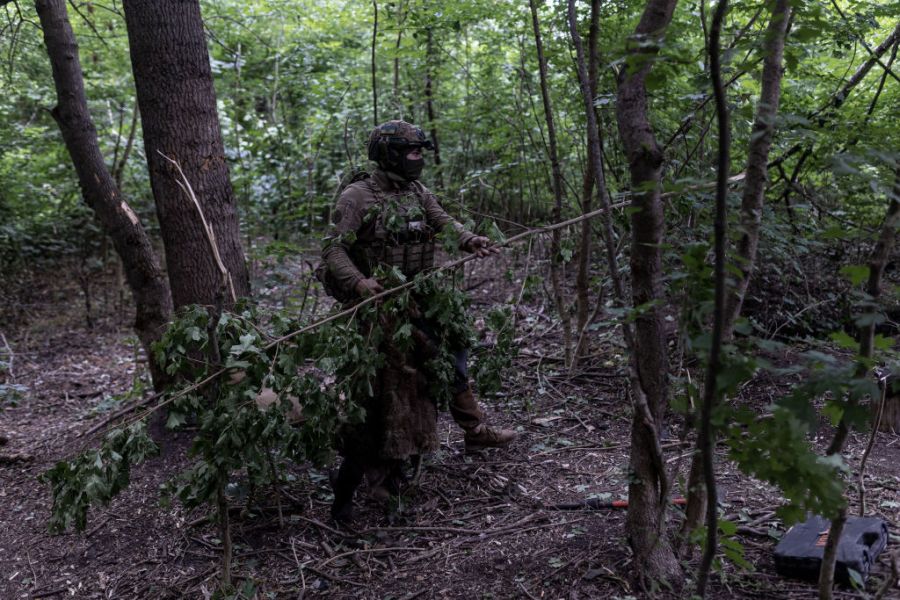
The Russia-Ukraine war is entering a critical phase. Kyiv is deploying new Western military supplies to try to build a solid defense and reverse Russian gains on the battlefield. At the same time, Moscow is seeking further territorial conquests by boosting its military production with export energy revenues and by evading international sanctions.
For Western governments, therefore, it should be just as much a priority to close the sanctions loopholes that are enabling Russia to fuel its war machine, as it is to supply Ukraine with all necessary weapons.
International sanctions against Russia’s economy have shown mixed results. This is because Moscow maneuvers around them, mostly with the help of other authoritarian regimes. Sanctions avoidance takes two main forms: the trade of sanctioned products to Russia and the purchase of sanctioned Russian exports. A global network of connections has developed through which sanctioned goods such as microchips and other electronic components for military hardware are smuggled into Russia, and significant Russian exports are being purchased and paid for in dollars and euros, even though Moscow is supposedly blocked from accessing Western currencies.
The EU has recently imposed a 14th package of sanctions against Russia, and China is being urged to halt sales of arms and dual-use goods to Moscow. However, Russia continues to acquire components for weapons from abroad. During 2023, Putin’s regime purchased $12.5 billion’s worth of battlefield goods, 40 percent of which were produced in locations where export controls are being circumvented, including the EU and U.S.
Russia has also used Turkey and the United Arab Emirates to bypass sanctions, while other countries have increased imports of EU goods that are then sold to Russia. It is estimated that 95 percent of all foreign parts in Russian weapons came from manufacturers from countries imposing sanctions. Moscow also continues to export oil products to Europe despite the EU/G7 petroleum products ban by using Turkey. Between February 2023 and February 2024, the EU imported $3.2 billion of oil products through Turkish ports, which have no refining hubs and import the bulk of their oil products from Russia.
Moscow has also developed illicit markets to acquire dollars and euros, including schemes for the sale of gold, its second most valuable export commodity after fossil fuels. Russia remains the sixth largest exporter of gold globally. Gold sales enable bulk payments of dollars and euros outside the global banking system from which Russian financial institutions are excluded. Russian gold exports earned about $16 billion in 2021.
Hence, in June 2022, the G7 banned imports of Russian gold to the UK, Canada, the U.S., and Japan. The G7 embargo on imports of Russian gold is estimated to have cost Moscow approximately $19.1 billion in exports last year.
However, a recent Sayari financial intelligence group study reveals how Russia has avoided restrictions on its exports by operating a cash-for-gold trade scheme, in which Turkish and UAE companies serve as a major conduit.
A U.S. executive order issued in December 2023 threatened to penalize financial firms conducting business with Russia in Western currencies, including Turkish companies purchasing crude oil and other Russian exports. These measures must now be strictly enforced with regard to gold exports.
As a NATO member, Turkey has a responsibility to demonstrate solidarity with its allies and place international security above national profiteering. Washington must persuade Ankara to close the sanctions loopholes. For without Western technology and money, Moscow will be unable to intensify its war against Ukraine and destabilize the broader Black Sea region.
Two Russian banks have played a central role in the sanctions-busting scheme with Turkey and the UAE — Lanta Bank and Vitabank. Both entities are sanctioned by the U.S. Office of Foreign Assets Control. Sayari examined Russian exports and discovered two well-known corporations as the major collaborators — the Dubai-based LS Global Trading and Turkey-based Ahlatci Holding. Ahlatci is one of Turkey’s largest conglomerates and benefits from close ties with President Recep Erdoğan.
Russian trade data shows that only in the first quarter of 2023, over $82 million in American, European, and Emirati currency were shipped from companies in Turkey and Dubai to Russia. In exchange, Russia shipped gold worth approximately $725 million to the same companies in Dubai and Turkey. These schemes evidently expanded throughout 2023 and 2024, as the demand for Russian gold remains high, with clients such as Ahlatci reportedly ready to purchase gold regardless of origin and willing to use intermediaries in the UAE.
The cash-for-gold strategy and other illicit operations extend far beyond Turkey and the UAE. Numerous states are complicit in allowing Moscow to fund and equip its war machine. Washington and its European allies must pressure governments that violate the sanctions policy by buying Russian commodities.
Equally important is the role of Western banks in curbing the export of sensitive military equipment. By monitoring trade in export-controlled goods and blocking illicit transactions, they can significantly close the sanctions loopholes. This empowerment can lead to a faster resolution of the war in Ukraine as Russia’s resources dwindle.
Janusz Bugajski is a senior fellow at the Jamestown Foundation in Washington and author of Failed State: A Guide to Russia’s Rupture.














